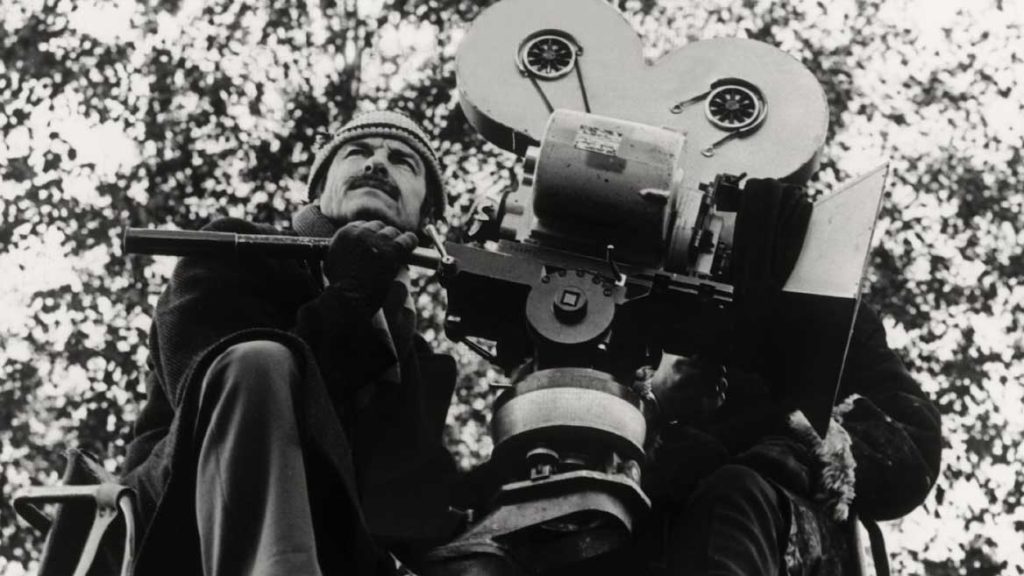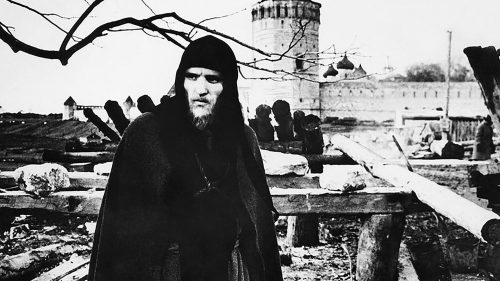
To talk about Tarkovsky, his poetic cinema, his sculpting of time, his ideas on science fiction, his hate for any unnecessary technological addition in filmmaking… is not easy.
When his Solaris (1972) came out, it was advertised as a Russian answer to 2001, but the two films couldn’t be more different. If a comparison with Kubrick must be made, it should be made with Shining (1980) – that’s where Tarkovsky’s influence appears. Tarkovsky’s refusal of any extra technological piece of scenography will bring him to make a movie such as Stalker (1979), again a science fiction piece, showing a post-apocalyptic scenery that we cannot make any sense of.
Throughout his career, the Russian filmmaker preferred anti-narrational cinema, employing sceneries and atmosphere his audience could immerse in and could be taken into a unique artistic experience. His Mirror (1975) is a perfect example: in it, all rules of filmmaking are invalidated, and the characters’ memories all mix up with real life.
Italy was a second fatherland to Tarkovsky. He spent his last years in the country. He and Tonino Guerra made Nostalghia (1983), a film of autobiographical taste.

Tarkovksy once commented on this version of his movie: “I maintain that this last version is the best, the one that came out better than the others. We cut needless scenes that had no real meaning and reduced some brutal scenes to induce a sort of psychological shock in our ...
Dazzling debut feature by a cornerstone of film history.
The life story of the greatest Russian icon painter on the background of violent Russian fifteenth-century history.
A man travels to a faraway planet shrouded in water to solve a mystery, only to become trapped himself…
What is the Zone? What hides in it, and how did it come about?
Facing imminent apocalypse, a man will sacrifice everything he has to try and reverse events.